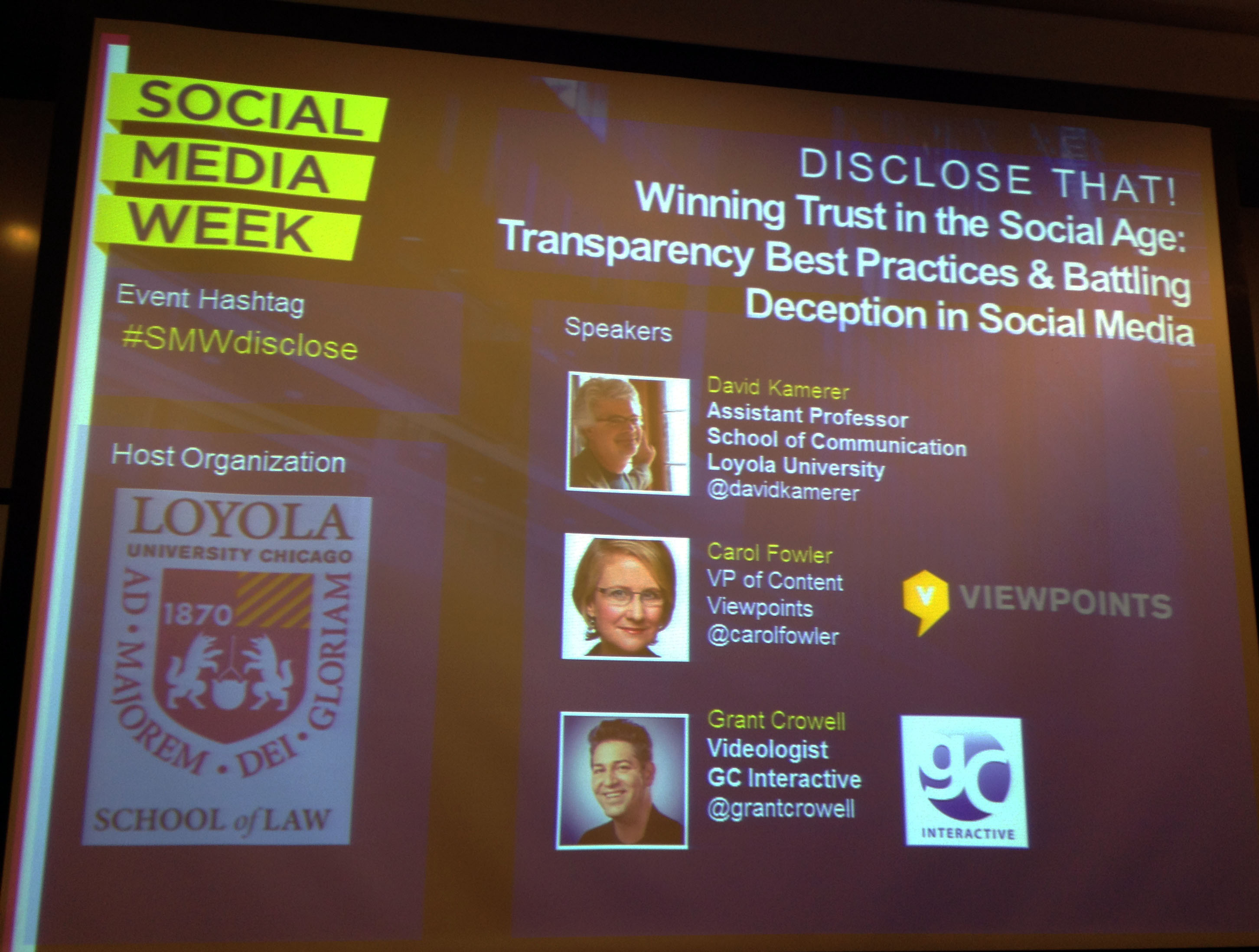Sponsored social media content sometimes looks like journalism while failing to disclose interests. In an era of search engine optimization (SEO) designed to drive website traffic, social media magnify a complex set of legal and ethical issues.
Loyola University Chicago hosted "DISCLOSE THAT! Winning Trust in the Social Age: Transparency Best Practices & Battling Deception in Social Media" during Social Media Week in Chicago.
"Journalistic" commercial messages are being "dressed like news," David Kamerer, Loyola assistant professor of communication said. "It steals from the ethos of journalism without delivering the ethical backbone that we expect from journalism." Very influential celebrities with millions of social media followers have used Twitter, for example, to promote undisclosed business interests.
"It's a symphony of special interests," Carol Fowler, vice president of content at Viewpoints product review site, said. "If you blur your eyes, it has the veneer of journalism." Fowler requires explicit disclosure statements that tell what happened in the process for products reviewed by her company.
Emotional social media content is effective in persuading audience members, Grant Crowell, GC Interactive videologist said. He follows Federal Trade Commission (FTC) sponsored content guidelines and works to inform industry practitioners. Brand advocates may be rewarded, but they do not expect anything in return for their opinions, Crowell said. Influencers, however, are hired by advertisers to promote products and services. Crowell recommends that the FTC standard of "clear and conspicuous" disclosure of interests be made at the beginning of videos. "Clearly identify who is sponsoring your content," he said.
"Written disclosures or fine print may be insufficient to correct a misleading representation" -- 103 F.T.C. 110, 174 (1984)
Against this backdrop media professionals in journalism, public relations, advertising and marketing face a host of current issues. Among them:
* Real-time content creation requires instantaneous decisions that may be better made with some reflection.
* Content creators in all areas need to be SEO experts in order to maximize the potential reach of messages.
* Industry growth continues on the digital side of businesses, yet most continue to employ at least some staff with legacy perspectives and skill sets.
* Media law and ethics are not keeping pace with small and big data collection, analysis and use.
As we move deeper into the 21st century, there is a growing sense that businesses cannot be saved alone by employing so-called "digital natives" -- those who grew up immersed in media technologies. Instead, critical thinking and media literacy skills are crucial for media content producers, promoters and audience members.

